Bonn, GermanyToday is the first day of informal climate negotiations in Bonn, Germany. Negotiators from the world's governments are here to try to consolidate over 200 pages of negotiating text in order to reach an agreement on climate in time for the big meeting in Copenhagen this December.
Date: Wednesday, July 22, 2009 - 20:04
Today the New York Times published an editorial highlighting two major loopholes contained in the climate and energy bill (ACES) that passed out of the House of Representatives last month. The Times brought to light that existing coal-fired power plants are exempt from performance standards and the difficulty of ensuring the additionality of offsets.
Date: Sunday, July 5, 2009 - 10:15
While the American Clean Energy and Security Act that passed through the House of Representatives last week has a number of laudable provisions on the energy side of the bill, International Rivers has major concerns with the climate provisions in the bill. The short-term emission reduction target is much weaker than what the latest science demands and the large number of permissable offsets blows the target to pieces.

Date: Friday, July 3, 2009 - 16:50
Today, I was interviewed on Terra Verde, an environmental radio program on KPFA in Berkeley. The focus of today's program was on climate justice and the international climate negotiations. The other guests were Jessica Tovar of Communities for a Better Environment and Tom Athanasiou of Ecoequity. You can listen to the program here.

Date: Thursday, June 25, 2009 - 08:56
In order to secure votes for the climate and energy bill from representatives of agricultural states, Congressman Waxman cut a deal with Congressman Peterson, chair of the House Agricultural Committee. Waxman compromised on two major issues. On the first, Waxman agreed to a five year moratorium before the indirect land-use effects of ethanol are assessed. On the second, the United States Department of Agriculture (USDA) will adminster domestic ag offsets, instead of the EPA. The EPA will be also given a role, although in what capacity is still unclear.

Date: Tuesday, June 23, 2009 - 08:28
Carbon offsets akin to an optical illusion?Yesterday the San Francisco Chronicle reported on criticisms that environmental groups have with the Waxman-Markey bill, the climate and energy bill currently making its way through the House of Representatives. International Rivers' executive director, Patrick McCully explained the illusory benefits of carbon offsets, since most of them are not additional.The bill would allow up to 2 billion offsets, equivalent to approximately 30% of the US' emissions in 2005. If the total number of offsets are turned in every year, emissions would not decrease within the United States until 2027. Yet the latest science makes it clear that cuts of at least 40% are needed in advanced economies. My earlier blog, as well as our in-depth analysis describes more fully the problems with the offsets provisions in the bill.
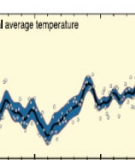
Date: Saturday, May 9, 2009 - 17:30
Last week I was invited to speak at a conference on jobs and the environment organized by the UC Berkeley Labor Center. The main focus of the day was carbon pricing policies such as cap and trade. But I wasn't asked to speak about offsets or the CDM. Instead I was asked to wear my climate scientist hat and present the latest scientific evidence for climate change. My presentation drew heavily from the fourth assessment report of the IPCC.
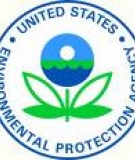
Date: Friday, April 24, 2009 - 10:55
Interestingly the EPA's analysis of the Waxman and Markey bill focused on the cap-and-trade program. Perhaps because it is one of the most controversial parts of the draft bill?
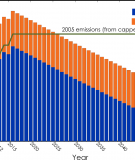
Date: Wednesday, April 15, 2009 - 09:09
Allowable US Emissions under Waxman-MarkeyWhile there is much to praise about the American Clean Energy and Security Act of 2009, the climate section of the draft bill is seriously weakened by its heavy reliance on offsets to substitute for actual emissions cuts by large polluters.
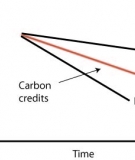
Date: Monday, March 30, 2009 - 22:23
No-lose sectoral targets
The Climate Action Network (CAN), a large international coalition of environmental groups, sent an official submission to the UNFCCC commenting on the future of the CDM, in anticipation of the climate negotiations that began in Bonn yesterday.The submission criticized the current structure of the CDM because of the inherent subjectivity of additionality testing, resulting in the generation of rip-offsets and no true greenhouse gas emission reductions to the atmosphere.
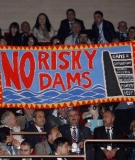
Date: Friday, March 20, 2009 - 00:22
WWF5 protestInternational Rivers sent two colleagues and myself to attend the fifth World Water Forum (WWF5) to draw attention to the unacceptable risks of large dams. But the World Water Council, the main organizer of the WWF, had no intention of giving us a chance to voice our opinion. Our proposal for a side-event on dams, as well as those proposed by other NGOs, were all rejected. On the other hand, the International Hydropower Association was permitted to organize a number of sessions for the official program.

Date: Thursday, March 12, 2009 - 21:36
The CDM Executive Board (EB), at its February meeting, reinstated the accreditation of DNV, the Norwegian certification company that has audited for CDM compliance a third of the projects submitted for EB approval. Back in the end of November I had reported that DNV was suspended for violating a number of rules.
Date: Sunday, March 1, 2009 - 17:01
This has not been a good month for carbon trading. In addition to the collapse in the carbon market (as reported in a previous blog), it's been getting quite a bit of bad publicity.
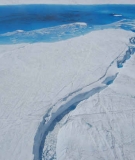
Date: Wednesday, February 11, 2009 - 12:32
Melting of Greenland ice sheetScienceA major reason why I left an academic career is because scientists are so adverse to meddling in the political sphere, They fear appearing biased if they express their opinion based on the facts presented. They hope if they just do good science, it will speak for itself. Now some scientists have realized that this is not the case. As an example, climate scientists are meeting next month in Copenhagen to pressure governments to respond more strongly to climate change.
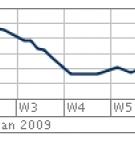
Date: Tuesday, February 3, 2009 - 17:19
Drop in carbon prices (€)Point CarbonThe price of carbon permits closed at a record low of US$13.94 today in the European Union Emission Trading Scheme (EU ETS), down from a peak of about $39 last summer. This price collapse removes incentives for industries to invest in low-carbon options such as energy efficiency or renewables.
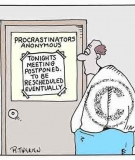
Date: Monday, December 15, 2008 - 07:31
Even though the climate is already changing, the best that the governments could do in Poznan during the UN Climate Change Conference is come up with a schedule of negotiations leading up to the next ministerial meeting in Copenhagen next December. There a deal for post-2012 should be signed.
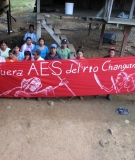
Date: Thursday, December 11, 2008 - 09:55
Banner at Protest Against AESDawn JonesEven though local communities in vulnerable areas of the planet such as Tuvalu or Bangladesh are already feeling the impacts of climate change, one rarely hears talk of their situation during the plenary sessions of the UN Climate Change Conference. In honor of Human Rights Day, which was yesterday, let's take a closer look at human rights in the context of the Clean Development Mechanism (CDM).

Date: Tuesday, December 9, 2008 - 09:28
What are the delegates saying about the Clean Development Mechanism (CDM) at the UN Climate Change Conference? Well, we don't really know what's on the table post-2012 because the discussion has been postponed to the next intersessional meeting in Bonn in March. But working papers that were released earlier this year contain a host of suggestions ranging from increasing the types of projects that could be eligible for credits (scary things like nuclear and carbon capture and storage) and shifting away from proving additionality on a project by project basis to sectoral approaches. These are all proposals aimed at increasing the scope of the CDM.
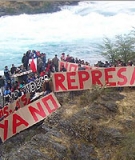
Date: Monday, December 8, 2008 - 08:42
No More Dams!
On Friday, International Rivers was asked to speak at a side event at the UN Climate Change Conference titled "False Solutions to Climate Change". I presented data showing that tropical reservoirs are often high emitters of methane, a greenhouse gas that is 25 times more potent than carbon dioxide. Reservoirs produce methane due to the rotting of organic matter under low-oxygen conditions. In certain cases these emissions can even be worse than a coal fired power plant. Our newest factsheet, Dirty Hydro provides more details.
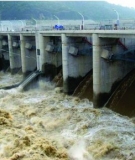
Date: Thursday, December 4, 2008 - 11:03
Hydro makes up nearly a third of CDM Projects The United Nations Framework Convention on Climate Change Secretariat organized a "changing lives" photo contest to raise awareness of the Clean Development Mechanism (CDM). Was the photo contest a last ditch effort to spruce up the CDM's image and deflect criticism?

Date: Monday, December 1, 2008 - 08:52
Durga - Hindu female warriorToday, the UN climate conference began in Poznan, Poland. At the conference, government representatives will be tasked with further developing the roadmap to reach an international climate agreement to replace the Kyoto Protocol, which expires in 2012. Although Poland is not as warm and exotic as Bali (where the meeting was held last year), International Rivers's women water warriors (Barbara Haya, Payal Parekh and Ann-Kathrin Schneider) are there. Despite the cold weather, we will follow a number of hot topics related to dams, rivers and climate change.
Date: Sunday, November 30, 2008 - 00:22
The Executive Board (EB) of the UN Clean Development Mechanism (CDM) must have read our recent report, Bad Deal for the Planet or my recent blog - we called for the EB to strip auditors of their accreditation to work for the CDM if they fail to apply the CDM's rules. On Friday at the Board Meeting, the EB came one step closer to doing that - it suspended the accreditation of DNV, an auditor that validates approximately half of the CDM projects that apply for registration. International Rivers is no stranger to the poor performance of DNV.

Date: Tuesday, November 25, 2008 - 16:33
I was surprised to find out that lots of methane is bubbling out of my favorite swimming hole. Wohlensee, a small run-of-river hydro reservoir in Switzerland (where I lived for the past three years), emits a whopping 780 metric tonnes of methane a year, according to a recent study from Eawag, the Swiss Federal Institute of Aquatic Science and Technology. This is equivalent to the amount of methane produced annually by 6,800 cows. The study only measured methane released in bubbles from the reservoir surface: Actual emissions may be several time higher due to the degassing of methane at the dam’s turbines and spillway and in the river immediately downstream.

Date: Friday, November 21, 2008 - 15:43
Kudos to the Executive Board (EB) of the UN Clean Development Mechanism (CDM) Board for announcing that it will publish the names of the auditing companies that signed off on projects that violate eligibility rules. In our recent report, Bad Deal for the Planet, International Rivers called for the EB to strip auditors of their accreditation to work for the CDM if they fail to apply the CDM’s rules. “Naming and shaming” does not go as far as we would like, but will enable the public to know who the repeat offenders are and to put pressure on the EB to give them the boot.



